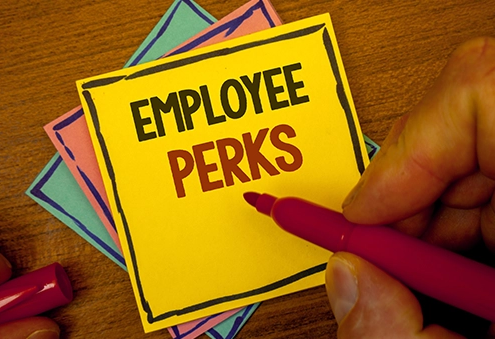A Guide to Working Overtime
When businesses fall behind on projects or deadlines, they often present the notion of working overtime.
However, there are specific legal and moral requirements needed before initiating this. It’s not as simple as asking employees to stay behind and work longer than normal. One bad move and you could end up breaching contracts and legislation.
Let’s take a look at what working overtime means, what the law covers, and how to manage it in a compliant manner.
What is working overtime?
Working overtime is when an employee works beyond their normal contractual hours.
They’ll either work overtime voluntarily or involuntarily. For example, if they’re contractually obliged to work overtime once a month. Or, if they’ve been asked to help out during an unexpected busy period.
The rules on hours and pay vary when it comes to overtime work. That’s because it depends on what type of work is being done, how many extra hours are needed, and what the pay rate is.
If you plan on initiating overtime, it’s important to adhere to the law. Employers should also be sympathetic when it comes to taking efficient rest periods or having commitments outside of work. If not, you could end up losing valuable and talented staff.
What are the advantages of working overtime?
There are countless reasons why companies offer overtime. Let’s take a look at a few examples:
- Need more time to reduce or complete the workload.
- Missed the deadline for a certain task or project.
- Currently low in staff numbers.
- Helping employees earn more money.
- Dealing with unforeseen business issues.
What are the disadvantages of working overtime?
Whilst the benefits may seem attractive, you can ignore the downsides to working overtime. For example:
- Lead to potential health, safety, and welfare issues.
- Need to budget for greater expenses.
- Face an increase in absences (due to ill-health).
- Employees feel obliged to work despite personal matters.
- Could impact the quality and quantity of output.
Are you obliged to work overtime?
In the UK, there isn’t a specific law that outlines the rules on working overtime. Instead, employers need to refer to legislation relating to work hours, pay, and wellbeing.
An absence of legislation means employees aren’t legally obliged to work overtime. Meaning, you cannot force them to work more than 48 hours per week – regardless of whether they have a written or verbal contract.
This is outlined under the Working Time Regulations 1998. If an employee agrees to work more hours, they must sign an agreement to ‘opt-out’ of this right. (They also have a legal right to defer back to the maximum weekly limit).
Are you obliged to pay overtime work?
There is no law on how overtime works when it comes to payment. Meaning, employers aren’t legally required to pay for overtime hours. However, it’s very unlikely that employees will work for free!
Many businesses will pay their staff to work overtime. And they’ll usually offer one of three options as payment:
- Statutory minimum wage rate.
- Normal hourly rate.
- Additional pay on top of their normal hourly rate.
A very common practice used by businesses is paying ‘time and a half’. How to work out overtime pay here is simple. The employee is paid their hourly rate plus an extra half – for every hour of overtime they complete.
However, many hours you offer as overtime, the average pay for the total hours must not fall short of the National Minimum Wage rate. If it does, you could be forced to pay back missing wages with compensation on top.
Do you get extra holidays for working overtime?
In the UK, employees can receive extra holidays for working overtime. From 2017, any employee who works regular overtime must have their hours included in their holiday pay and other compensations (like commission or bonuses).
Employers have a legal duty to calculate overtime hours into a minimum of four weeks for holiday pay. You can then choose to either pay their basic hours rate or amend it accordingly.
Since 2022, holiday pay for part-time workers who work overtime is based on the last 52 weeks worked. Employers are still legally obliged to apply the same overtime pay rules for both full and part-time employees.
How to manage employees working overtime
Now that we’ve looked at the benefits and laws, it’s up to you whether overtime will work in your business. If you do, here are a few steps to consider:
Outline your overtime terms
The first step you need to take is to outline your terms for working overtime. Include them within your company policies and handbooks so all employees have access to them.
It’s also a good idea to include them in employment contracts, even if certain employees won’t be asked to do overtime. Run this by your HR department to ensure your terms are lawful.
Keep track of all overtime hours and pay
Employers must keep track of all overtime hours and pay. This includes calculating how many hours individuals complete; as well as paying them accordingly. Remember, you cannot pay them less than the National Minimum Wage rate.
It’s also important to keep on top of any work benefits employees are entitled to. For example, commission pay, annual leave, bonuses, or other entitlements agreed to within their contracts.
Care for their wellbeing
Remember, employees who work regular overtime will be more tired than normal. So, make sure you care for their wellbeing as best as you reasonably can.
Make sure they’re taking breaks in accordance with their overall working hours. Some may legally be entitled to longer breaks depending on how many overtime days they’ve worked.
Be aware of presenteeism
Presenteeism is when an employee works despite being ill or sick. They may feel they can’t afford to miss out on overtime pay; or believe productivity will be affected if they don’t attend work.
Employers must ensure their staff are physically fit enough to work. Make sure people are eating and resting well. If a sick employee is worried about losing out on extra wages, send them home with the promise of making up lost hours.
Love2shop can help you reward hard-working employees
When it comes to overtime work, employers must keep on top of hours, pay, wellbeing, and work benefits. If it’s done well, your productivity levels will sky-rocket – along with your revenue.
When employees are taken care of well, it leads to work satisfaction and engagement. Why not reward their efforts through Love2shop’s customer loyalty schemes? We guarantee there is a gift or incentive that’s suitable for all your hard-working overtimers.







